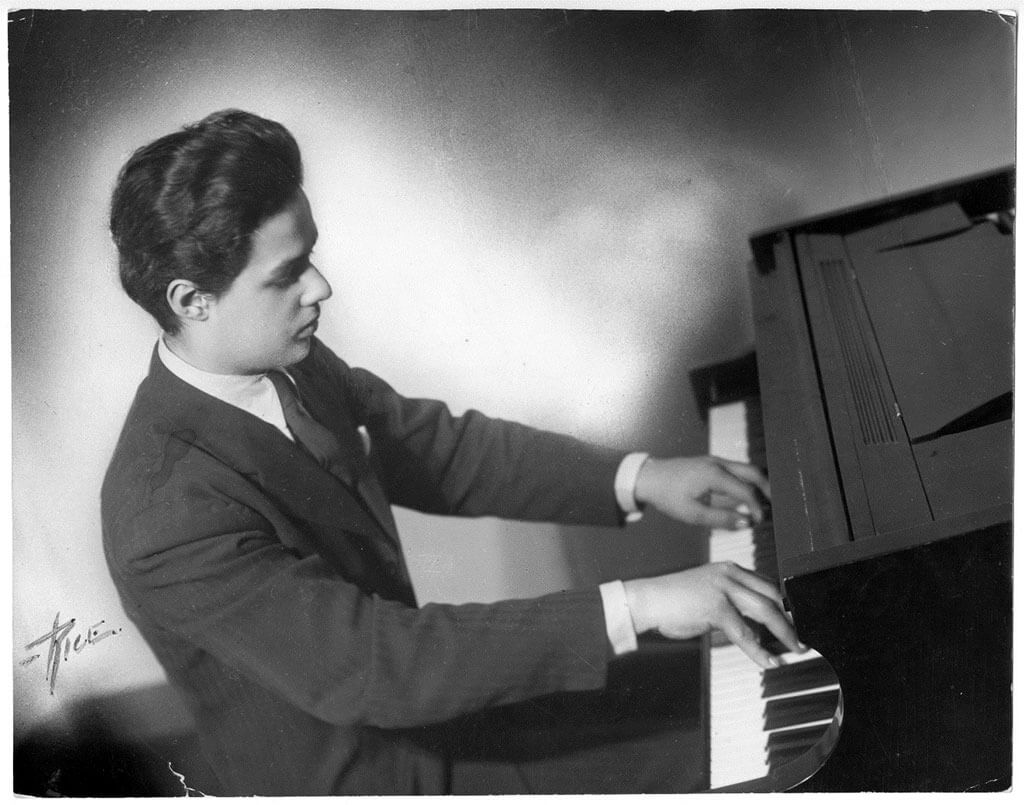
We all know about Mozart and Beethoven, who displayed their musical talents at an early age and were eagerly promoted by their fathers. But history is full of cases of exceptionally musical children before the advent of after-school piano lessons and Baby Mozart videos. Here are some of history’s youngest classical musicians.
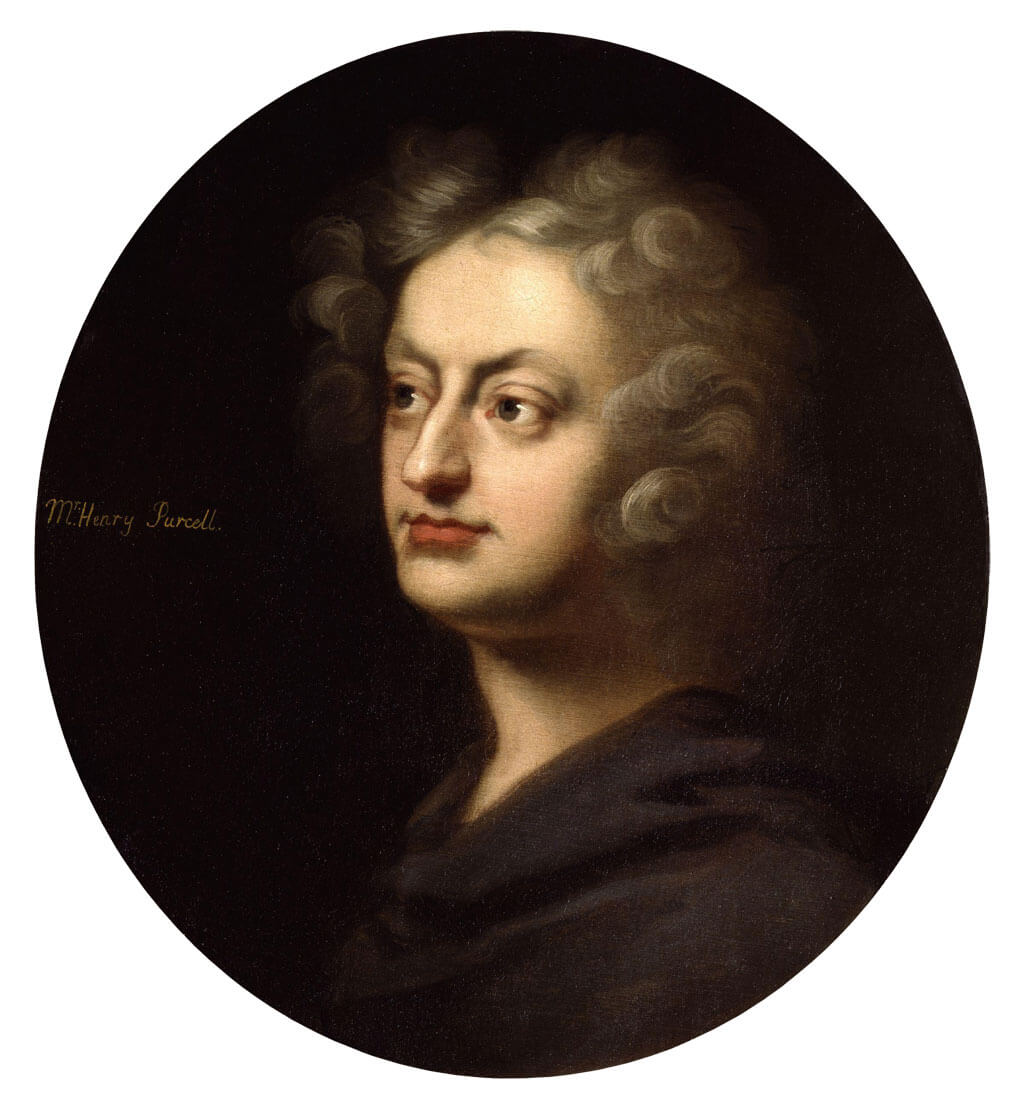
1- Henry Purcell
Born 1659, died 1695; debut at age 5
One of the greatest and perhaps most influential of the English composers, Henry Purcell was born into a musical family, including his father and younger brother who was also a prolific composer. He began studying music around age 5 thanks to his well-connected musician uncle. The earliest of Purcell’s compositions that can be definitively attributed is « The Address of the Children of the Chapel Royal to the King and their Master, Captain Cooke, on His Majestie’s Birthday, A.D. 1670, composed by Master Purcell, one of the Children of the said Chapel », written when he was 11, but he probably wrote the three-part song Sweet tyranness, I now resignwhen he was 9. One of Purcell’s defining characteristics was his ability to learn French and Italian Baroque styles while still maintaining his individuality to write in a style that became distinctively English.

2- Niccolò Paganini
Born 1782, died 1840; debut at age 7
Best-known as one of the seminal figures of modern violin technique and as a composer, Paganini was also a violist and guitarist who began learning the mandolin from his father, who was a part-time musician to supplement his income, at age 5. Moving to violin at age 7, his virtuosity earned him scholarships and a string of prominent teachers. His first public performance was at a church in 1794 before age 12. His technique and skill was such that he was rumored to have made a deal with the devil, but his talents were physical, rather than diabolical, in nature: with long fingers and exceptional flexibility, Paganini could play an extraordinary three octaves across four strings in a hand span. He pioneered techniques involving manual dexterity, which were still uncommon in the early 19thcentury.
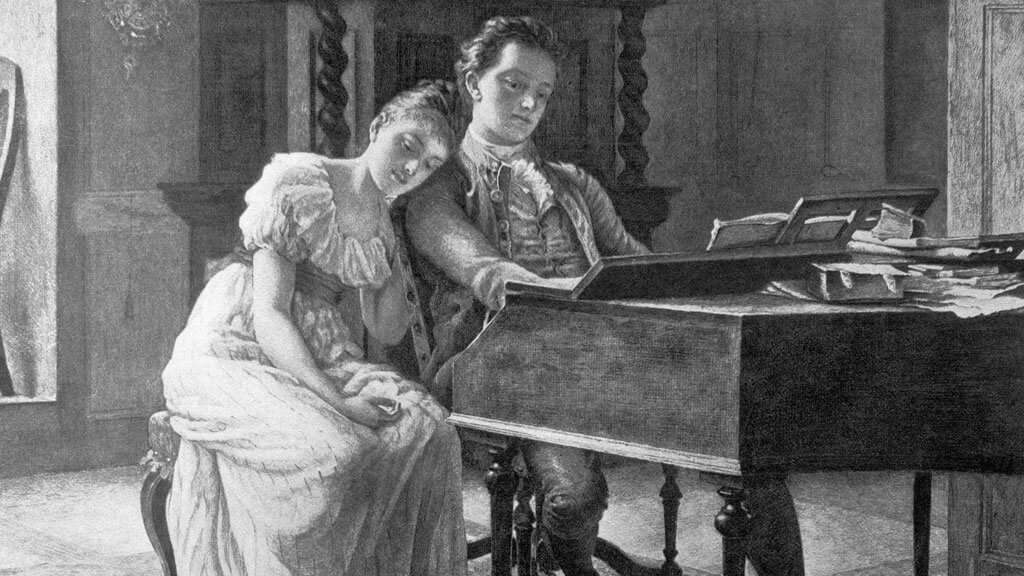
3 & 4- Fanny and Felix Mendelssohn
Fanny born 1805, died 1847; Felix born 1809, died 1847, debut at age 9
German composer, pianist, organist and conductor Felix Mendelssohn began composing complex and masterful works at age 10, though maintained a conservative style, distinct in the revolutionary Romantic era, throughout his life. Felix’s sister Fanny, the eldest Mendelssohn child, also displayed virtuosic talent at a young age; in fact, she was initially favoured over Felix by her father and her teacher, Carl Friedrich Zelter. Unfortunately, the prevailing attitudes of the era meant that while her father and brother supported her musicianship privately, many of Fanny’s 460 compositions were published under Felix’s name. Both siblings were tutored by Marie Bigot in Paris, and studied composition with Zelter at the Sing-Akademie zu Berlin beginning in 1819 at ages 14 and 10. Felix began composing prolifically at this time, and composed Overture to a Midsummer Night’s Dreamin 1816. In addition to his compositions, one of Felix’s greatest legacies was the founding of the Leipzig Conservatory of Music in 1843. Fanny was a great musical inspiration to and influence on him until her death, six months before his.
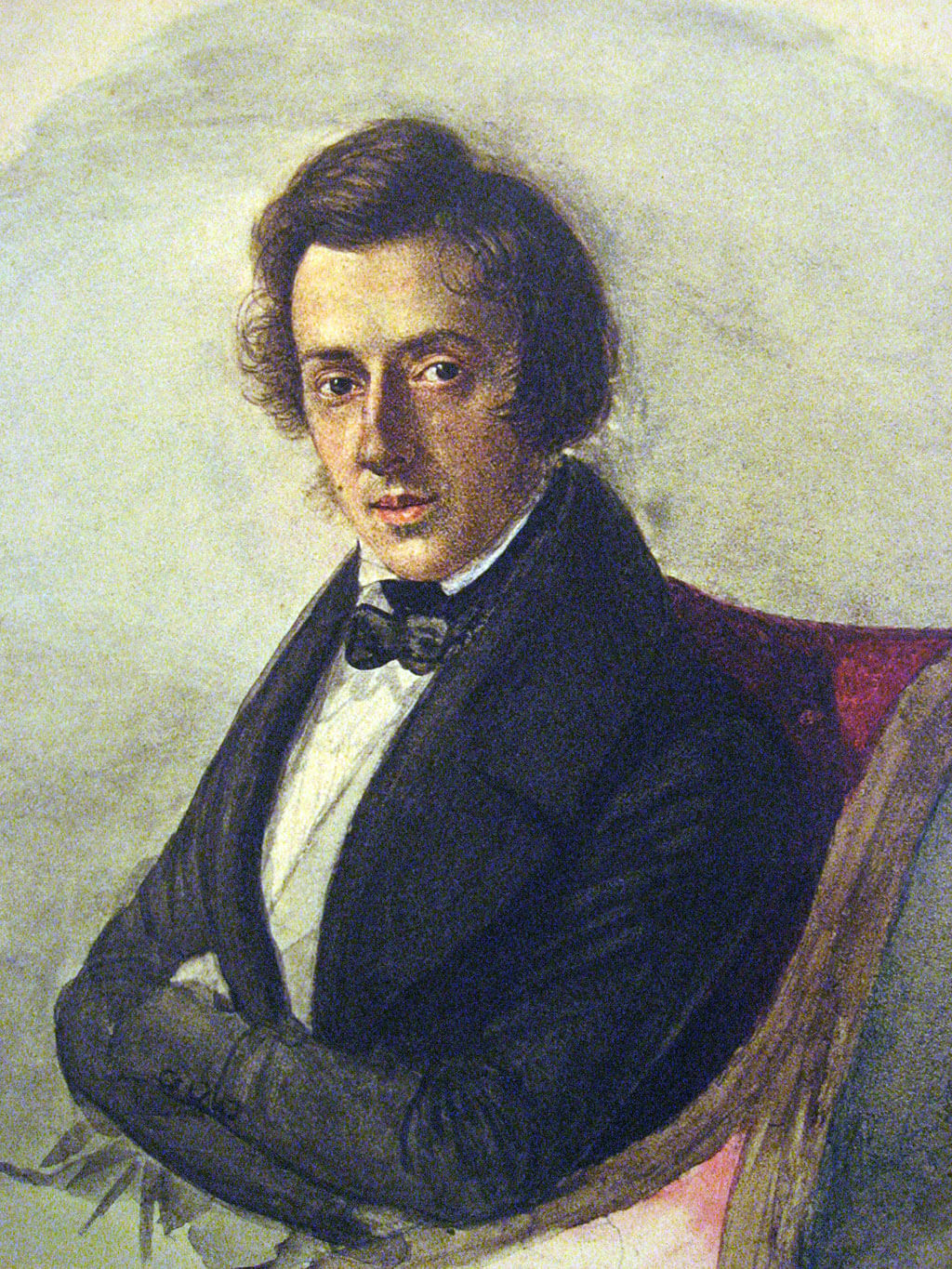
5- Frédéric Chopin
Born 1810, died 1849; debut at age 6
Chopin, Poland’s most significant composer, began studying piano with Czech pianist Wojciech Żywny at age 6, but may have received earlier instruction from his mother, who, like his father, gave music lessons. By age 7, he was giving private concerts and published his first compositions the same year. Gaining a reputation as a “second Mozart”, he was popular in the salons of the Polish aristocracy, but was then oblivious to his own popularity; after one concert, he reportedly told his mother that the audience was admiring his shirt collar. With his delicate, intimate style, the salon was his preferred environment throughout his life, and in adulthood he mainly supported himself by teaching piano and by selling his compositions. His talent, innovation, and influence coupled with his close relationships with Franz Liszt and George Sand cemented him as one of the most important figures of the Romantic era.
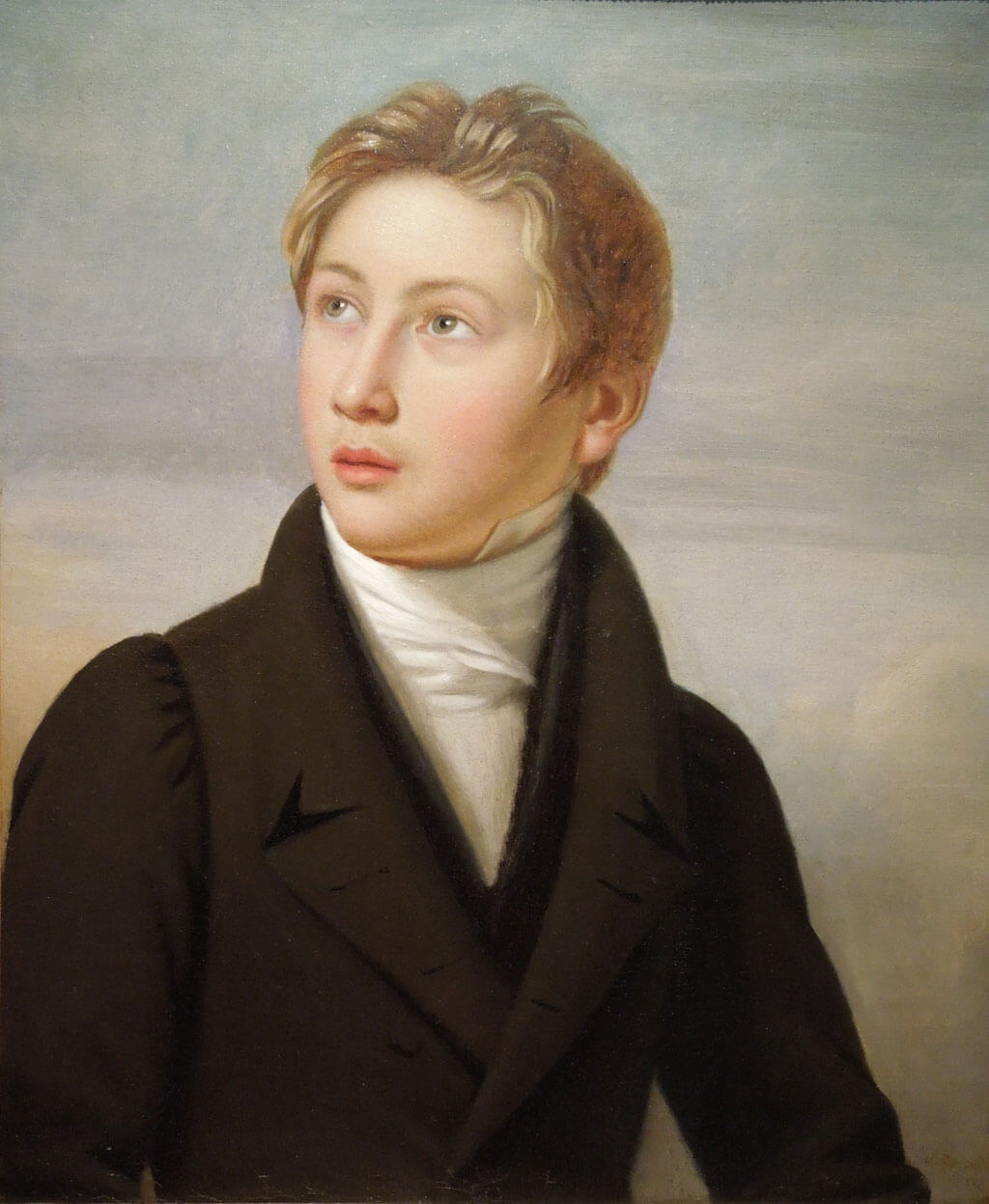
6- Franz Liszt
Born 1811, died 1886, debut at age 8
The first musical “superstar” and perhaps history’s greatest piano virtuoso, Franz Liszt began rigorous musical training with his multinstrumentalist father. By age 8, he began composing the first of more than 700 works over his life; by 9, he had already played through the complete works of Bach, Mozart, Beethoven, and other composers, and began playing concerts for aristocrats that same year, including his own improvisations. Carl Czerny, with whom he studied in Vienna, noted Liszt’s great talent but “chaotic” form. His public debut came in 1822, and in 1823, he performed at a concert where Beethoven was in attendance, who was reportedly so impressed that he came onstage to praise young Liszt, kissing him on the forehead.
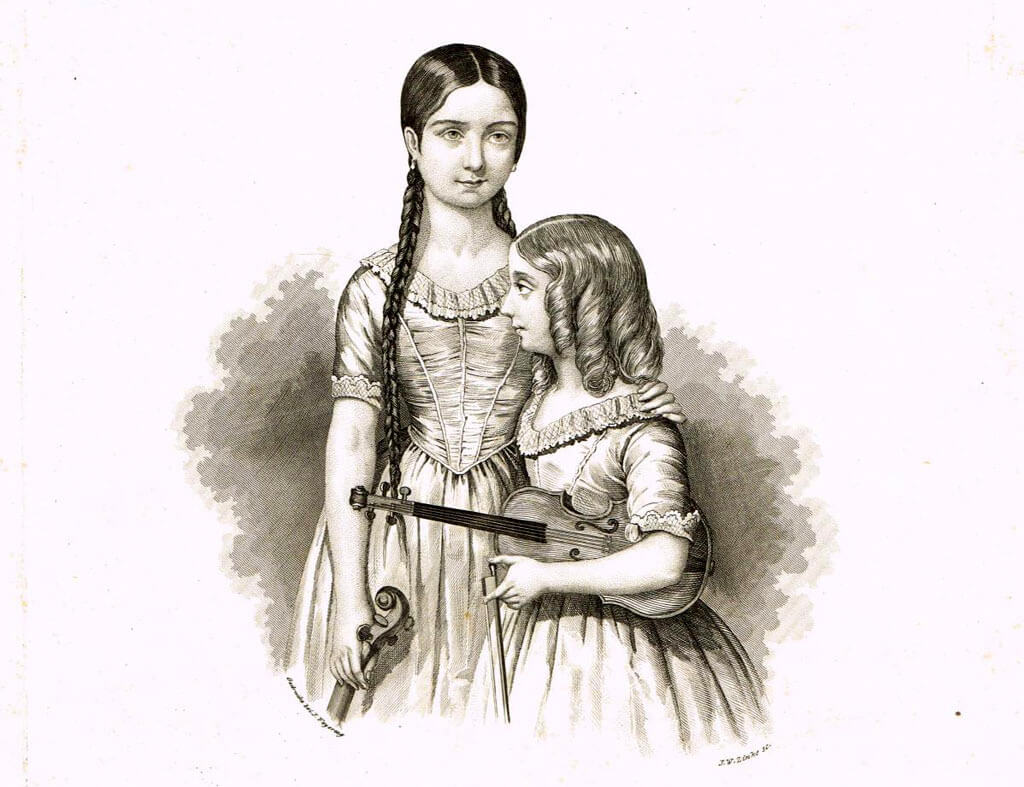
7 & 8- Teresa and Maria Milanollo
Teresa born 1827, died 1904, debut at age 8; Maria born 1832, died 1848, debut at age 6
These two violinist sisters took Europe by storm with their virtuosic playing and distinctive personalities. Born to a luthier father, Teresa showed an interest in music at age 4 and asked her father for a violin of her own, which he made for her and gave her basic lessons. She traveled to Turin at age 8 to study violin after taking lessons locally, and gave her first concert at age 9. At age 11, after various performances and tutors, she began tutoring her 6-year-old sister Maria on violin as well. The same year, they performed together, creating a sensation as two female prodigies. Maria was nicknamed « Mademoiselle Staccato » for her lively and cheerful personality, while Teresa, more serious, was dubbed « Mademoiselle Adagio ». Maria unfortunately died of tuberculosis ate age 16, but Teresa, hailed as a musical genius, continued a solo career, performing and composing until her marriage at age 29, establishing a series of charity concerts in France. The Milano sisters are now recognized as pioneers for female violinists and musicians, and three of their violins survive today, including a 1703 and a 1728 Stradivarius and a c. 1680 Ruggieri.
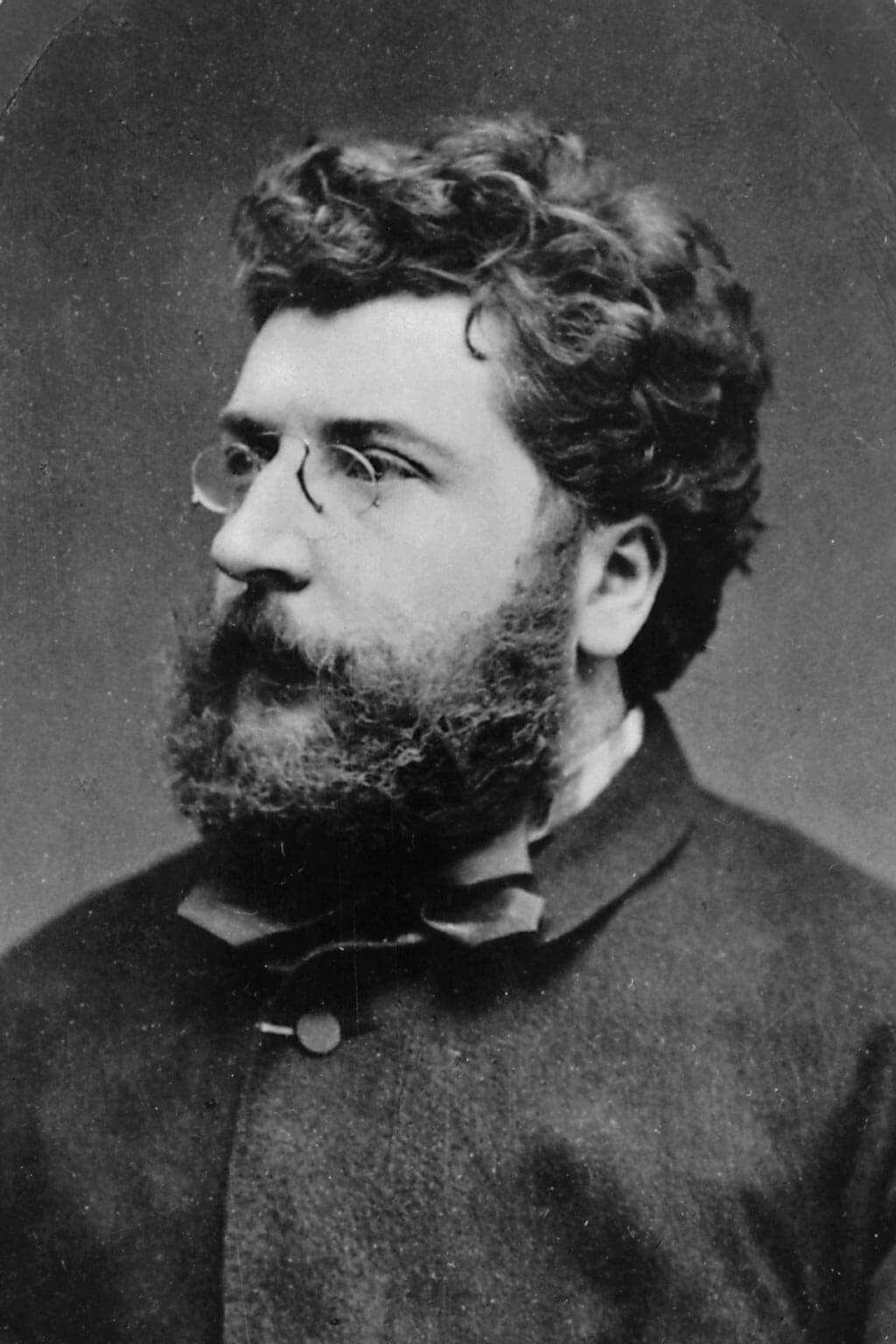
9- Georges Bizet
Born 1838, died 1875, debut at age 9
George Bizet was born to a mother who was an accomplished pianist and a father who gave singing lessons despite his lack of formal training. Young Bizet’s talents became apparent as he would clandestinely listen in on his father’s lessons, learning to analyze and sing difficult passages from memory. His skill was so apparent that he was allowed an exceptional entry into the Conservatoire de Paris at age 9, and soon won a prize in solfège. As a teenager, he was influenced by Charles Gounod and met another of Gounod’s students, fellow prodigy Camille Saint-Saëns, with whom he remained friends. His earliest works were written around age 12 and he composed his first symphony at age 17, which was rediscovered only in 1935 when it was hailed as a masterpiece, and he won the Prix de Rome for composition at age 19. Killed by a heart attack at age 36, Bizet’s last and most famous work is Carmen, which was both shocking and innovative, though critically panned in its day.
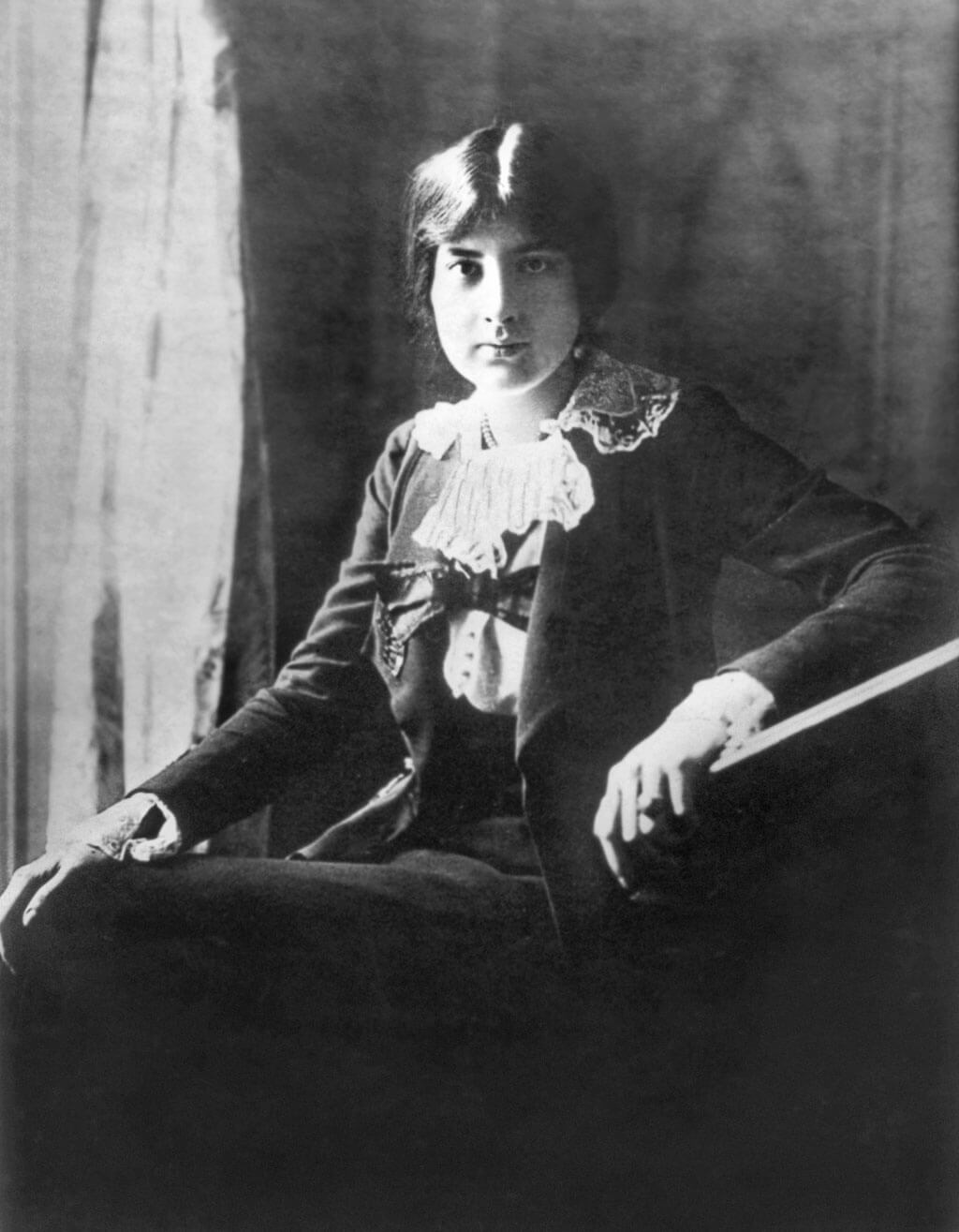
10- Lili Boulanger
Born 1893, died 1918, debut at age 6
Born into a distinguished musical family that included older sister Nadia Boulanger, Lili displayed perfect pitch as early as age 2, as discovered by family friend, and later Boulanger’s teacher, Gabriel Fauré. A musical polymath, she began studying organ with Louis Vierne at age 6 and subsequently mastered the piano, violin, cello and harp. One of Nadia’s early composition students, she was the first woman to win the Prix de Rome for composition at age 19. Her life was cut tragically short as she developed Crohn’s disease and died at age 24.
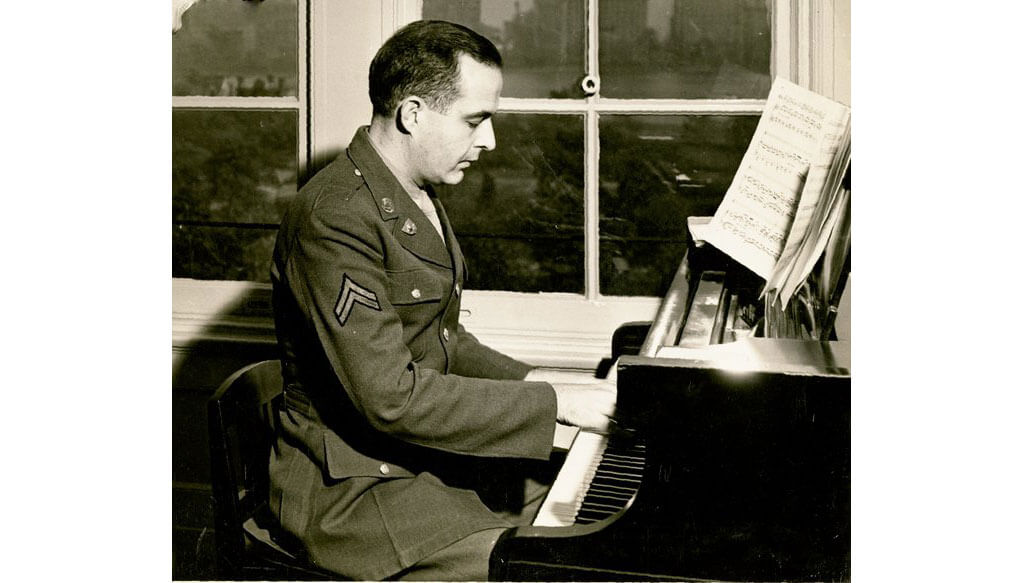
11- Samuel Barber
Born 1910, died 1981, debut at age 7
One of the most successful operatic composers of the 20thcentury, young Samuel Barber was influenced by his aunt, a leading contralto at the Metropolitan Opera, and his uncle, who composed art songs. He began learning piano at age 6 and composing at age seven, writing a piano piece called Sadness and, at age 10, attempting his first opera. Young Barber knew early that he was destined for a career in music, writing to his mother, “I have written this to tell you my worrying secret. Now don’t cry when you read it because it is neither yours nor my fault. I suppose I will have to tell it now without any nonsense. To begin with I was not meant to be an athlete. I was meant to be a composer, and will be I’m sure.” Entering the Curtis Institute of Music at age 14, he was a triple prodigy in composition, voice, and piano. Barber went on to compose opera, orchestral, piano and violin works, win two Pulitzer prizes among other distinctions, and become a spokesperson for musicians and musical organizations internationally.
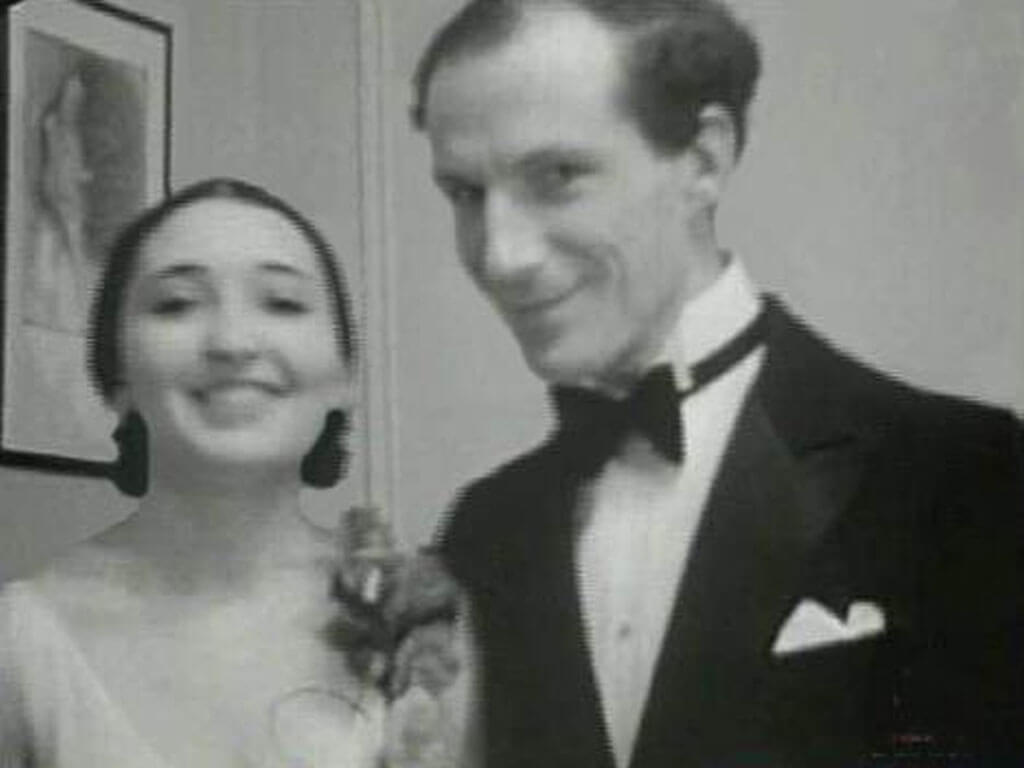
12- Clara Rockmore
Born 1911, died 1998, debut at age 4
Clara, née Reisenberg, began studying violin at age 4, but is today known as the world’s best player of the theremin, an instrument patented in 1928 and played without any physical contact between the performer and instrument. She was the youngest person to ever study at the Saint Petersburg Conservatory, where she had to audition standing on a table due to her tiny size, and also studied at the Curtis Institute after her family immigrated to the U.S. when she was 10. She was forced to give up violin after tendinitis affected her bow arm, but she soon met Leon Theremin and began playing his new instrument. She remains one of the theremin’s most important figures as she both worked with Theremin to improve the original instrument, and helped transform its image from an ultimately limited novelty into a legitimate medium for art music.

13- Yehudi Menuhin
Born 1916, died 1999, debut at age 4
The greatest violinist of the 20thcentury, Menuhin was, according to biographer Humphrey Burton, “the most famous kid on the planet” in his day. He began studying violin at age four and made his debut as a soloist with the San Francisco Symphony Orchestra at age 7. As a teenager, he drew praise from Albert Einstein and conductor Bruno Walter, who described him as “a child, and yet a man”. Known for the distinctive sensitivity of his playing, Menuhin’s personality reflected his music, and he became outspoken regarding various issues, particularly after WWII and the Holocaust, an advocate for world music before the term was coined, and established a festival, a school, and music programs.

14- André Mathieu
Born 1929, died 1968, debut at age 4
The “Canadian Mozart” was a precocious child — he reputedly started talking at four months, and walking at seven. Born to two musician parents, it was his father who gave him his first piano lessons, recognizing young Mathieu’s exceptional talent. He began composing at age 4 and gave his first concert, including his own compositions, at Montréal’s Ritz-Carlton hotel at age 6, and a year later, broadcast on CBC. After receiving a grant from the Québec government to study in Paris, he delighted French audiences, including critic Émile Vuillermoz, who wrote of him, « I declare that at the same age Mozart had written nothing comparable. » Unfortunately, Mathieu’s career declined in his later years, and he died in obscurity. It is only posthumously that his work is being rediscovered and celebrated once more.
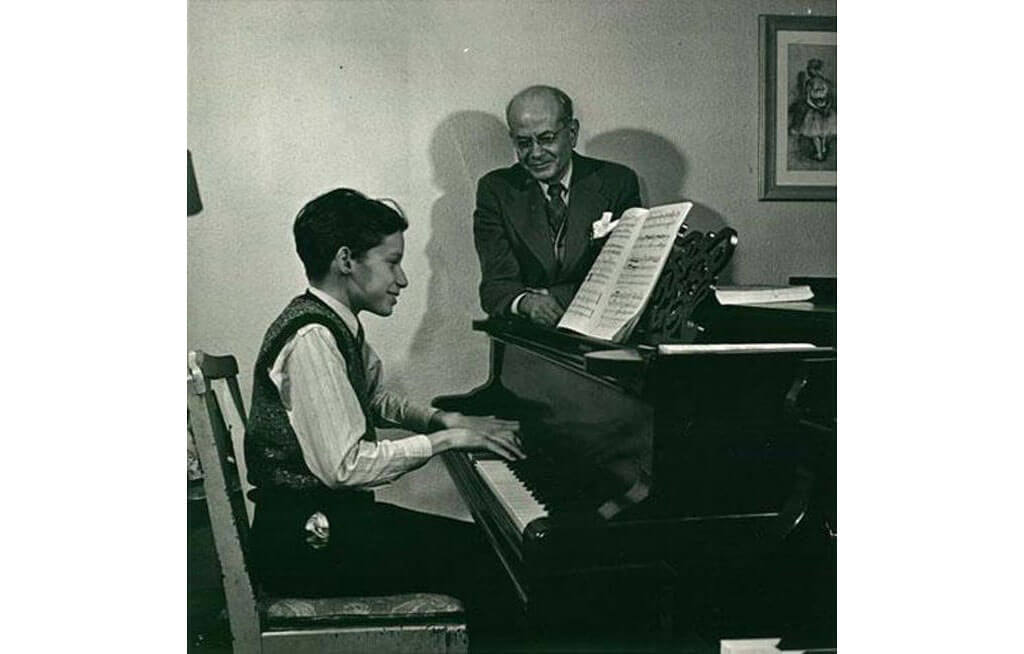
15- Glenn Gould
Born 1932, died 1982, debut at age 6
Possibly the most celebrated pianist of the 20thcentury, Glenn Gould’s parents aspired to a musical child before he was even born; his mother played music for him while she was pregnant, and baby Gould reportedly hummed instead of crying. He could read music before words, and would strike single notes on the piano, listening to their decay. He began performing his own compositions privately as early as 6, and after lessons with his mother at home, began studying at the Toronto Conservatory of Music at age 10. Gould developed an unusual technique, sitting low at the keyboard and pulling down on keys rather than striking them, partly due to a back injury. This technique allowed him a great deal of control over the keyboard, allowing him to strike notes quickly yet clearly. He graduated the Conservatory with top marks at age 12, and in his subsequent career, further demonstrated his unique mind by reading music, rather than playing it, to practice. Known for his eccentricity, he became a prolific recording and broadcasting artists as well as musical writer until his death of stroke at age 50.
ALSO READ:



